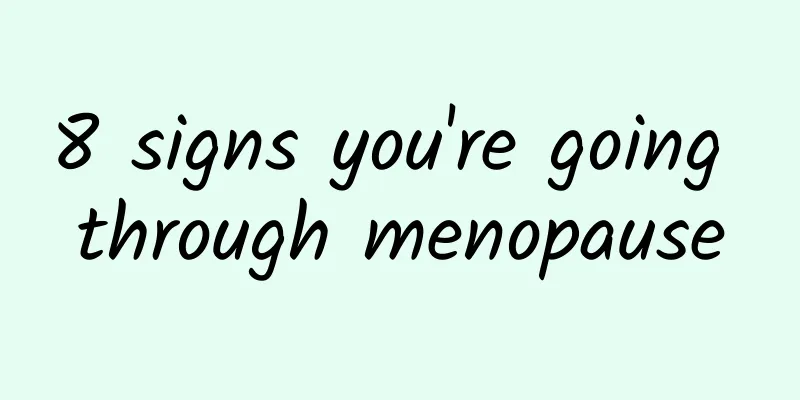8 signs you're going through menopause

|
Menopause is an important stage in a woman's life, usually occurring between the ages of 45 and 55, but each person's experience may be different. So, what are the signs that can help you determine if you have entered menopause? Here are eight common signs that I hope will provide you with some reference. Changes in your menstrual cycle are one of the most obvious signs. You may find that your periods become irregular, sometimes shorter, sometimes longer, or even go several months without a period. This is because your ovaries gradually weaken, causing hormone levels to fluctuate, which affects your menstrual regularity. Hot flashes and night sweats are also classic symptoms of menopause. Imagine being in a cool room and suddenly feeling a wave of heat, or even sweating so much at night that you need to change your sheets. These are all because of changes in hormone levels in the body that affect body temperature regulation. Sleep problems are also a common problem during menopause. Many women find it difficult to fall asleep or wake up easily in the middle of the night during this stage. Insomnia or poor sleep quality not only affects the mental state during the day, but may also aggravate other menopausal symptoms. Mood swings and psychological changes are also something to watch for. You may find yourself becoming more irritable, anxious, or moody. These changes may be due to hormonal fluctuations in the body and psychological reactions to physical changes. Vaginal dryness and decreased libido are also common signs of menopause. As estrogen levels drop, the vaginal walls may thin and lose lubrication, causing discomfort or pain during intercourse, which may also affect libido. Weight gain and metabolic changes are also common during menopause. You may notice an increase in waist circumference even if your diet and activity level haven't changed significantly. Hormonal changes may affect fat distribution and metabolic rate. Seventh, changes in your hair and skin may bother you. Your hair may become thinner or dryer, and your skin may lose its elasticity and luster, all because of the effects of reduced estrogen on your skin and hair. Loss of bone density is also a concern after menopause. Estrogen plays an important role in maintaining bone health, and its reduction may lead to an increased risk of osteoporosis. If you find yourself experiencing any of the above signs, you may wish to communicate with your doctor for professional advice and support. Menopause is a natural physiological process, and understanding these changes can help you better adapt to this stage. Remember, maintaining a healthy lifestyle, including a balanced diet, regular exercise and a good mental state, will go a long way in getting through menopause smoothly. |
<<: How much does intrauterine adhesion surgery cost?
>>: What does superconducting flow mean?
Recommend
Is second degree cervical erosion serious?
Second degree cervical erosion is generally not s...
What are the specific dangers of candidal vaginitis?
Many people do not know what candidal vaginitis i...
Which is better for abortion, local anesthesia or general anesthesia? What are their advantages?
Patients with good financial conditions are bette...
Experts introduce fungal vaginitis
Do you know about candidal vaginitis? Do you know...
Can sauna help you lose weight? Helps sweat more than weight loss
I want to lose weight, but the laziness in my hea...
What to check for abnormal vaginal discharge
When leucorrhea is abnormal, doctors usually perf...
Can donating blood help you lose weight? 4 common myths about blood donation
Donate a bag of blood, save others and save yours...
What are the causes of bacterial vaginosis?
Bacterial vaginitis is a common disease among wom...
How much does it cost to treat uterine fibroids? Is it painful to treat uterine fibroids?
Uterine fibroids are a common gynecological disea...
How much does it cost to treat functional uterine bleeding?
Dysfunctional uterine bleeding, abbreviated as DU...
Effective care is also important for the treatment of vulvar leukoplakia
Due to external factors and personal hygiene, vul...
How to check for vaginitis
Vaginal itching, increased leucorrhea, and yellow...
Symptoms of uterine fibroids Common complications of uterine fibroids
The early symptoms of uterine fibroids are genera...
Prevention of Hyperprolactinemia
Methods to prevent hyperprolactinemia. Hyperprola...
Is there any medicine that can delay menstruation for two days?
Is there any medicine that can delay menstruation...









